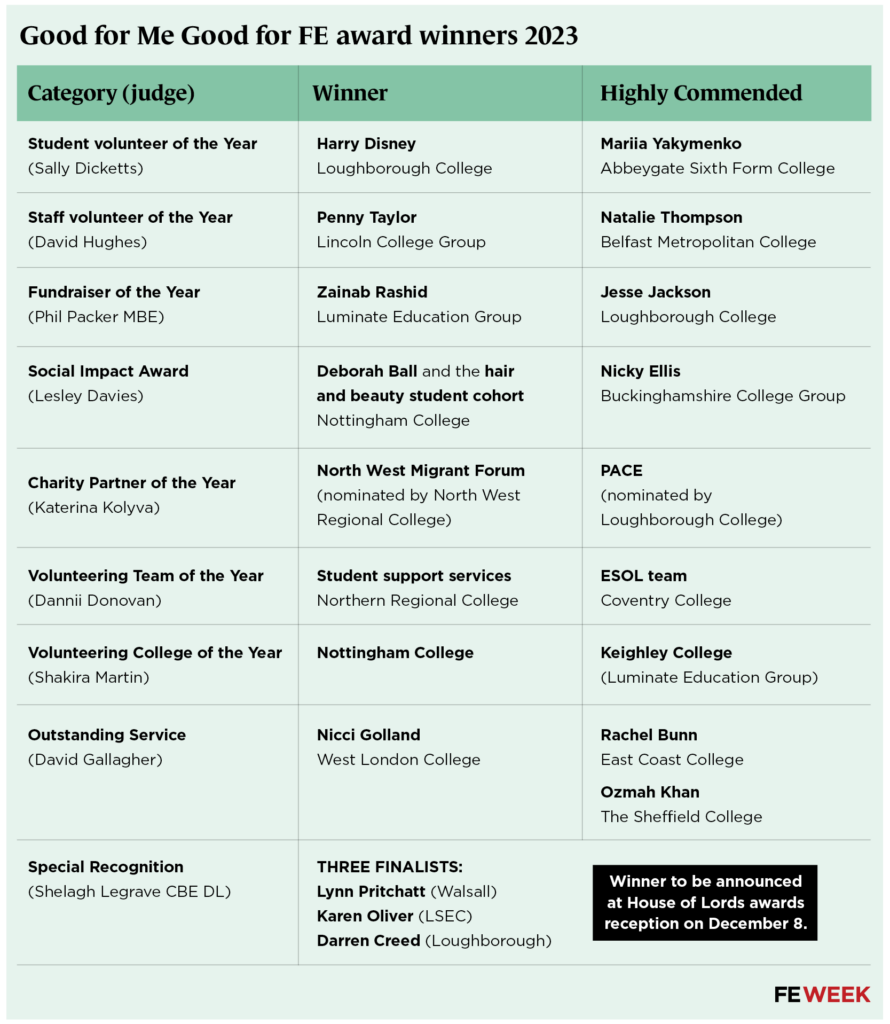Ofsted has criticised the use of external tutoring agencies and unqualified teachers in its latest review of the 16 to 19 tuition fund.
The £500 million scheme was launched in 2020/21 as part of the government’s education recovery programme following the pandemic up to the end of 2023/24.
Ofsted’s latest review follows visits to 34 providers in 2022/23, including three that took part in last year’s phase one review; 18 FE colleges, 16 sixth-form colleges, two independent training providers and one specialist college.
FE Week understands this will be Ofsted’s final study into the use of the tuition fund, which is now in its final year.
Findings from the first stage of the review were published last October. Here are the key findings from the second stage.
External agency tutoring ‘weak’ and ‘generic’
In a third of providers visited, Ofsted found “limited” evidence that tutors had enough information about learners to assess progress. This was particularly the case in providers using external tutoring agencies. The review found that poor communication between curriculum staff and tutors meant that external agencies often carried out their own initial assessments, “as providers rarely gave them this information”.
Conversely, providers found to have “strong” tutoring provision nearly always used their staff rather than an external agency. Effective providers involved tutors in curriculum team meetings and regularly shared updates with teachers and learners.
Tutors hired through external agencies also lacked the “in-depth training needed to deliver high-quality sessions”.
All of this led to, in Ofsted’s words, “weaker” quality tutoring and more “generic” sessions for learners.
Agencies were used in a small number of providers where they had difficulties recruiting tutors, or had a high number of eligible learners.
But those tutors were “less suitable” than in-house staff, according to Ofsted. External tutors were mostly not qualified teachers, and some were found to be recent school leavers. Where they had some teacher training provided by their agency, it was deemed “rudimentary” by Ofsted and “not appropriate for the importance of the [tutoring] role.”
However the majority of providers in Ofsted’s sample used their own staff for tutoring, either qualified English and maths teachers or non-teaching tutors for study skills or careers support.
Where they were cases of unqualified teachers tutoring, inspectors found a “notable difference” in the quality of their sessions compared to those delivered by qualified teachers. Sessions led by unqualified teachers were often “poorly planned,” “less effective,” and “lacked the subject-specific knowledge and pedagogical skills needed to give relevant feedback or correct learners’ misconceptions in real time.”
Lacking subject expertise
Inspectors criticised ten providers using tutors for “generic exam preparation” rather than filling specific gaps in learning or using research to inform their activities.
“In several [weak] providers, teachers or course instructors have tutors past exam papers for learners to complete and mark together. This was not carefully linked to knowledge gaps and did not have clear curricular goals,” the report said.
Preparation for exams is allowed under tuition fund rules, but Ofsted found providers commissioning tutoring which was providing “generic exam skills” in place of subject content, delivered by non-subject specialists.
Six of the sampled providers hired recent graduates as mentors and coaches to work on study skills and life skills, like time management and essay planning. Inspectors praised providers that did this successfully, highlighting how it improved learners’ confidence and their academic targets.
Tutoring was most effective when it aligned with the subject curriculum, Ofsted said. The “strongest” providers assessed the gaps in learners’ knowledge and skills before and during tutoring. This meant they could “adapt their teaching to ensure that learners developed their knowledge and skills securely and quickly”.
Misuse of funding in some providers
Ofsted found “many providers” were not using tutoring for its intended catch-up purposes.
Department for Education guidance said that providers should use their funding for one-to-one or small-group tuition, focusing on learners with significant knowledge gaps. The department later made changes to make the eligibility criteria more flexible and accessible by allowing leaders to target funds towards academic and vocational courses as well as other areas, such as exam preparation and study skills.
In most cases, leaders chose to use it for exam preparation and study skills, rather than using research literature to set up effective tutoring provision that focused “unerringly” on specific gaps in learners’ knowledge.
Two providers used the funding to target attendance and behaviour by employing mentors specifically for this issue, despite this not being in line with the published guidance, according to Ofsted.
Inspectors said there was little evidence to suggest that once learners were attending, providers were giving them extra lessons or catch-up opportunities. This meant that any learning gaps were not being filled.
When exam preparation was the focus of the funding, most providers chose to select, as a priority, all learners who were re-sitting mathematics and/or English GCSEs.
Groups ‘too large’ for quality tutoring
The point of tutoring is for smaller group sizes so learning can be more personalised. Tuition fund guidance says groups should be up to five learners, or seven in exceptional circumstances.
But Ofsted found group sizes of six or more in a quarter of its sample, with two providers having “as many as 10 learners” in tutoring groups.
“Tutoring groups of more than five learners veered away from quality tutoring,” the report said.
Inspectors said that learners in smaller class sizes reported “fewer distractions” and “improved focus.”
According to the report, “only a few” providers kept track of learner attendance in tutoring sessions, so it “was not clear” that leaders were targeting learners most in need of support.
Inspectors saw evidence of systems to check the quality of tutoring provision in only a “few” of the providers sampled.
Future tutoring ‘untenable’ without more funding
Tuition fund funding ends at the end of this academic year. Ofsted’s review said leaders told its inspectors that tutoring had a positive impact on learners, but only one provider planned to continue with it once the funding ends.
One principal is quoted in the report describing the tuition fund as “like a lifeline since the pandemic” with others telling inspectors they would like to see the funding continue for future year groups that were also affected by the pandemic.
Financial limitations mean that if there the tuition fund is switched off, providing ongoing tuition will be “unrealistic”.





